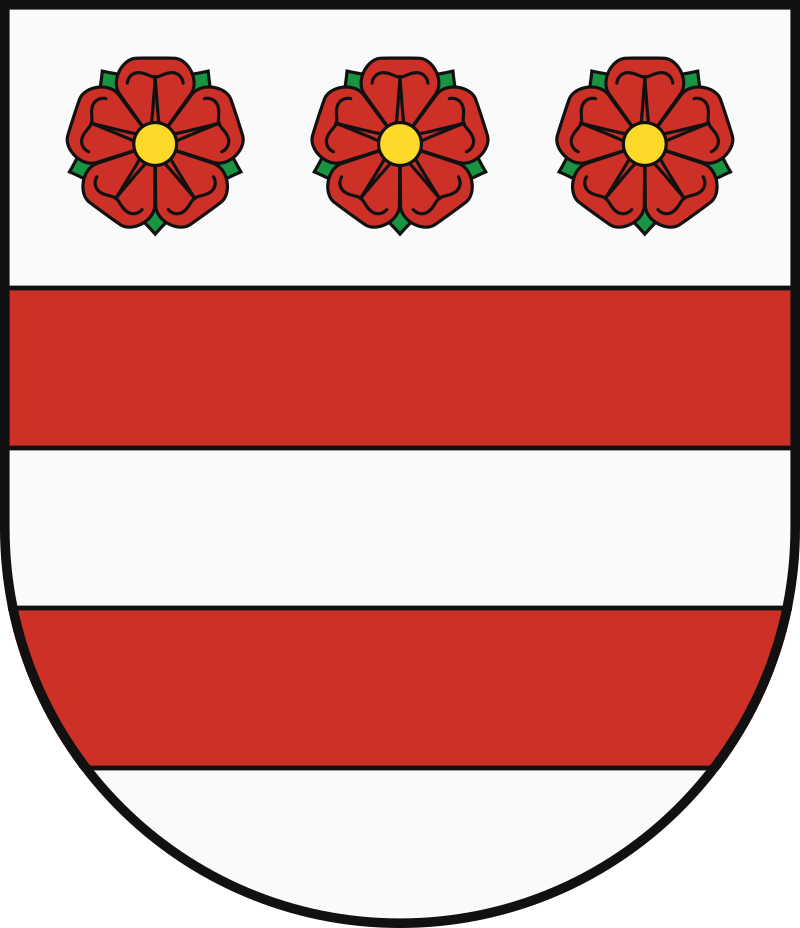The background
Before entering Civic eState’s initiative the city of Presov was not familiar with the concept of co-governance. Furthermore, the city of Prešov devoted itself to a minimal extent to projects based on the active participation of communities, which was the core of Civic eState.
This was the reason that led the Local Administrative Group to get involved in the network. Its intentions were to gain the opportunity to improve in these areas and to lay new foundations for effective cooperation, based on the best practices of the cities participating in Civic eState’s network.
As we can understand the City of Presov had no policies regulating the commons furthermore there was a general sense of mistrust within citizens due to past public projects and policies that proved to be detrimental. Given this background the city of Presov was considered a learning city because despite the fact that there were no previous policies and regulations there was a strong motivation within the team.
The city of Presov initially selected an abandoned civil protection bunker as a transfer asset in which experiment forms of co-governance but unfortunately after some research the internal team discovered that it wasn’t totally owned by the city. For this reason, they selected another asset, an abandoned “urban oasis” next to the city center.
If you are interested in knowing how the city of Presov is prepared to face this challenge, you can download the complete transferability study.
1. The starting point
The opportunity to participate in this network was offered by the ministry of transport and for this reason the city of Presov decided to accept in order to benefit from international cooperation.
Despite this, the city was aware that the transfer process was not entirely possible. It is important to keep in mind that the mindset of the population is still partly affected by communism, and it is not common for citizens to take care of city management issues, although this is changing with newer generations.
Cultural and social differences as well as valid legislation should also be considered, the Slovak Republic has strict rules for public procurement and disposal of municipal property. Presov’s team knew that it would not be possible to follow Naple’s strategy; however, they believed that they were able to implement participatory solutions in the management of urban commons. Furthermore there were other challenges that had to be addressed. The first one was the slovakian bureaucracy, which was extremely rigid and could have hindered a true management of the urban commons by the citizens. In addition to this, there was a general mistrust towards the local administration. Furthermore the adequate funding for the project that Presov’s team wanted to implement was missing.
As previously stated, it is important to bear in mind that the city of Presov had no comprehensive legislation on commons and that there was a lack of citizen participation. In addition to this Presov’s communication rules and manuals were not ready to face the challenges encountered in the projects.
If you want to know how the city of Presov prepared itself to face the above-mentioned challenges, download Presov’s official transfer plan.
2. Transfer journey
The creation of the ULG (Urbact Local Group) was initially extremely difficult, both in the administrative structure, where there was a lack of legal support, and at the level of experts and community participation. Progress in this respect was much slower than the rest of the network, it was necessary to create the right communication manual and a method of cooperation.
Furthermore, the common goals of the ULG were not precisely specified at the beginning therefore the promotion of ideas was difficult. Many frictions were removed when the town hall changed some of the members of Presov’s team. The entry of the University of Prešov within the ULG had a very positive impact on the project thanks to its expertise that led to creation of a memorandum of Cooperation, which also had a positive impact on the activities of the Urbact local group.
The ULG was composed by the following stakeholders: the municipal office, private actors, that were engaged through personal contacts, the university of Presov, which contribution was crucial, social organizations, that have been involved mainly through work-shops, and civic innovators that have been involved personal contacts and manifestation of interest. The ULG was divided into three main components, a legal one, an administrative one and an organizational one. Nowadays the Urbact local group counts 11 permanent members and another 10 members that are not permanent.
The city of Presov put all its efforts in learning from the other cities of the network and in particular it focused on improving communication with its citizens.
The creation of the ULG (Urbact Local Group) was initially extremely difficult, both in the administrative structure, where there was a lack of legal support, and at the level of experts and community participation. Progress in this respect was much slower than the rest of the network, it was necessary to create the right communication manual and a method of cooperation.
The main objectives of the journey were:
- Create a communication manual to enable cooperation among the city and relevant stakeholders for co-governance projects.
- Expanding legal possibilities in relation to land use by the citizens.
- Trying to learn the most by the other members of Civic eState’s network.
The transfer process led to the simplification of the legal rules governing the use of abandoned or unused buildings in the city of Presov. Furthermore, an “urban oasis” next to the city-center was identified as the urban asset in which experimenting forms of co-governance. The aim was to transform the “urban oasis” into a cultural space managed by citizens.
3. Transfer Journey time-line
The following section is dedicated to the main phases of the transfer journey. Main phases:

January 2021 – July 2021
In this phase the urban asset was selected. The aim was to implement the adequate open call strategy in order to grant participation in the management of urban commons. Furthermore, the technical and legal aspects were tackled in order to enable the selected urban asset. The main actors involved at this stage were the municipality office, the University of Presov, private actors, social organizations and individual citizens.
January 2020 – August 2020
This phase was dedicated to implement project procedures in relation to the selected urban asset. Due to the Covid-19 pandemic there was a limited preparation for an open call. The main actors involved in this phase were the municipality office, the University of Presov and private actors.
September 2020 – December 2020
This phase was dedicated to the preparation of open calls together with social organizations. Unfortunately, this process did not lead to fundamental solutions but on the other hand useful feedback for the project was collected. In the meantime some of the legal memos produced within the ULG were moved to the legislative process and were discussed in experto commission and the necessary legal opinions were presented. The main actors involved at this stage were the municipality office, the University of Presov, private actors, social organizations and individual citizens.
September 2019 – December 2019
This phase was dedicated to the expansion of the ULG structure. Individual citizens entered the ULG and the University of Presov supported the project with its expertise. In this phase the first legal memos were written. Furthermore, social organizations entered the ULG bringing in their knowledge of public participation. The main actors involved at this stage were the municipality office, the University of Presov, private actors, social organizations and individual citizens.
May 2019 – August 2019
The ULG was divided into an organizational and legal unit. The aim was to expand the Urbact local group and to involve different stakeholders just like in the other partner cities. For this reason the municipality office, with the fundamental help of the university of Presov, started to expand the ULG initiating dialogue with external experts and citizens. The main actors involved were the municipality office and the University of Presov.
January 2019 – April 2019
This phase was dedicated to setting internal guidelines, common objectives and the necessary action to achieve them. In this phase the main stakeholder involved was the municipal office.
The transfer process helped Presov to improve in the field of co-governance, in fact the current legislation regulating the use of abandoned or unused buildings in the city has been simplified in order to allow citizens to truly manage urban spaces. Furthermore, an “urban oasis” next to the city-center was identified as the urban asset in which to experiment with innovative forms of co-governance. The aim was to transform the “urban oasis” into a cultural space managed by citizens.
If you want to know more on how the city of Presov coped with this amazing challenge download the official transfer diaries
4. Transfer outcomes
The biggest challenges Presov had to face was the one of simplifying bureaucracy and creating an open space that allowed communication between citizens and the city. Furthermore, even if a lot of improvements have been achieved, the city still needs to simplify bureaucratic procedures because these risk to hinder co-governance policies. For what attains the improvement of communication with citizens a lot has been done but there is still much work to do. Another crucial issue that still has to be tackled is the one of accessing adequate funding. In relation to this problem Presov implemented a fundraising and marketing platform.
If you want to know more about Presov’s concrete outputs, download their official legal memos:
5. TRANSFER JOURNEY MAPPING
Co-Gov
From Weak to Strong
University; NGOs; individuals; lawyers helping the community, both professionals and city lawyers. We can’t say it is strong, but it became stronger.
Enabling state
From Moderate to Moderate
We learnt that we can simplify the bureaucreatic procedures and solve some issues in a simpler way. The open call stimulated a very positive response from the actors.
Soc&econ pooling
From Weak to Moderate
Presov Capital of Culture, opportunity to activate resource pooling. Civic eState work was used to submit the application for the Capital of Culture. People met in the ULG and then started working together on fundraising.
Experimentalism
From Strong to Strong
We challenged the cultural norms within the administration that are against/fear involvement of civic actors. Open communication and clear rules for collaboration.
Tech Justice
From Moderate to –
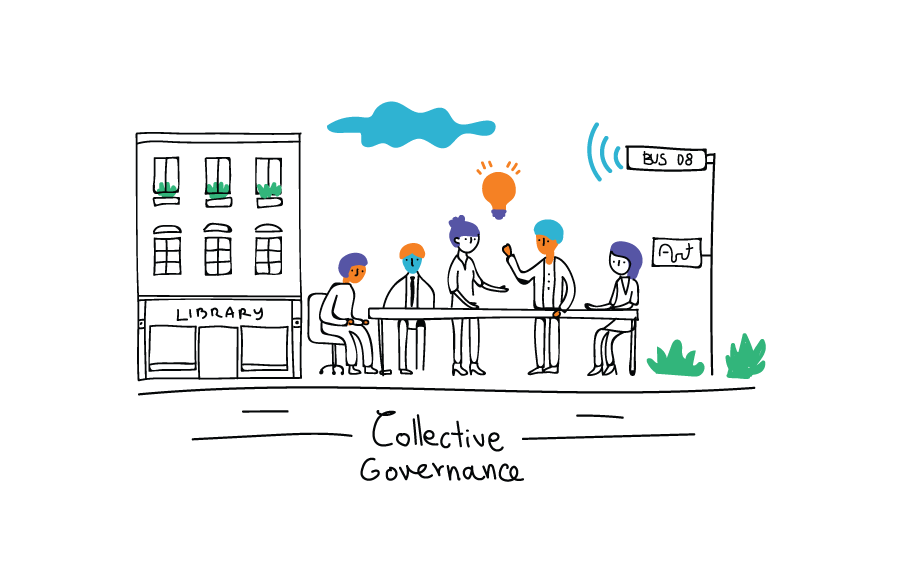
From Weak to Strong
Co-Gov
University; NGOs; individuals; lawyers helping the community, both professionals and city lawyers. We can’t say it is strong, but it became stronger.
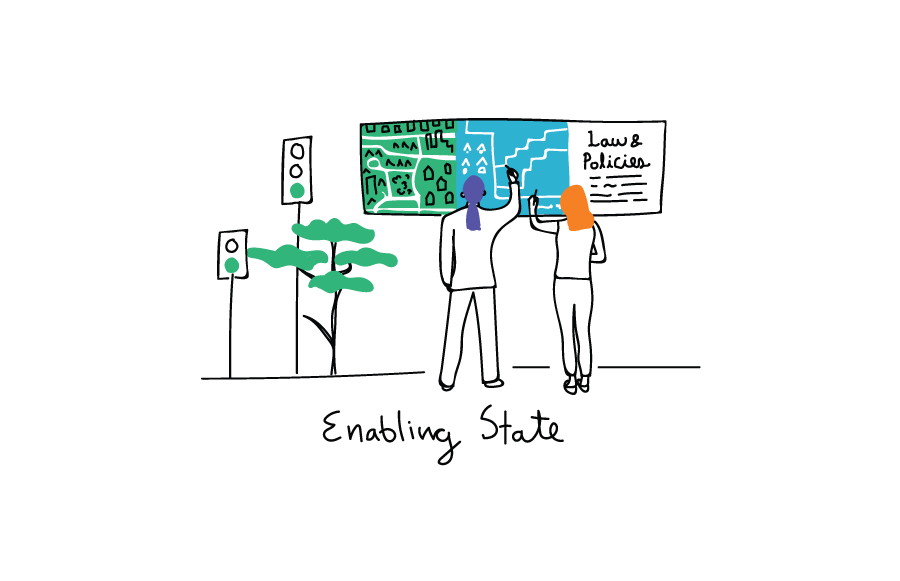
From Moderate to Moderate
Enabling State
We learnt that we can simplify the bureaucreatic procedures and solve some issues in a simpler way. The open call stimulated a very positive response from the actors.
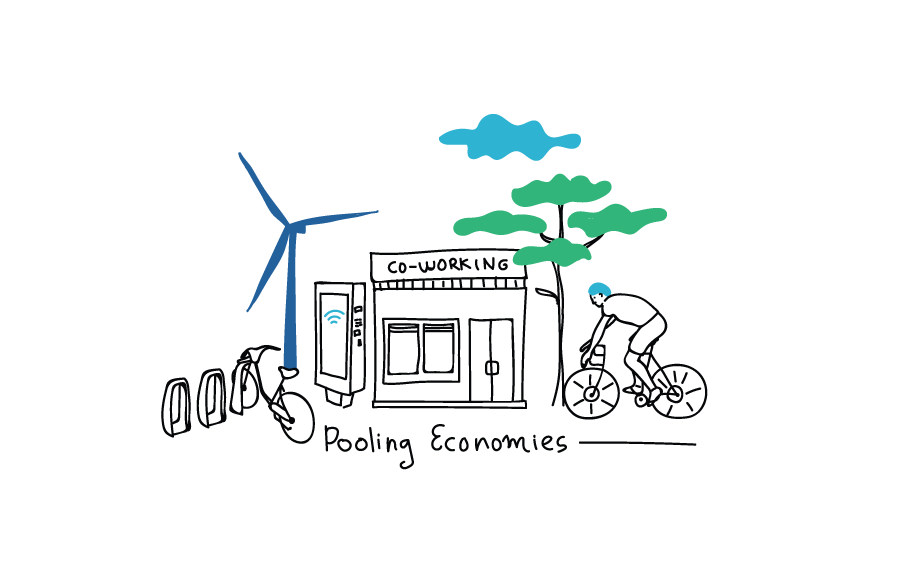
From Weak to Moderate
Soc&econ Pooling
Presov Capital of Culture, opportunity to activate resource pooling. Civic eState work was used to submit the application for the Capital of Culture. People met in the ULG and then started working together on fundraising.
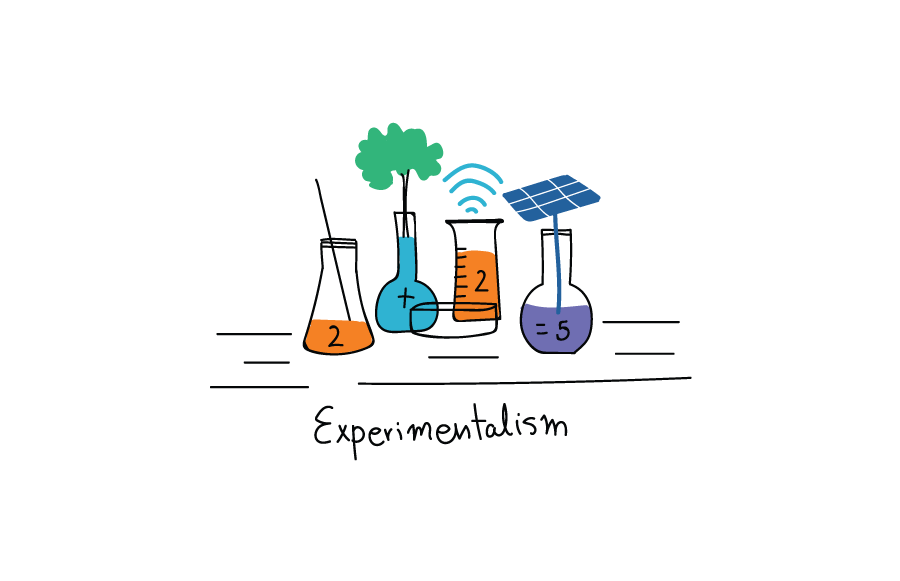
From Strong to Strong
Experimentalism
We challenged the cultural norms within the administration that are against/fear involvement of civic actors. Open communication and clear rules for collaboration.
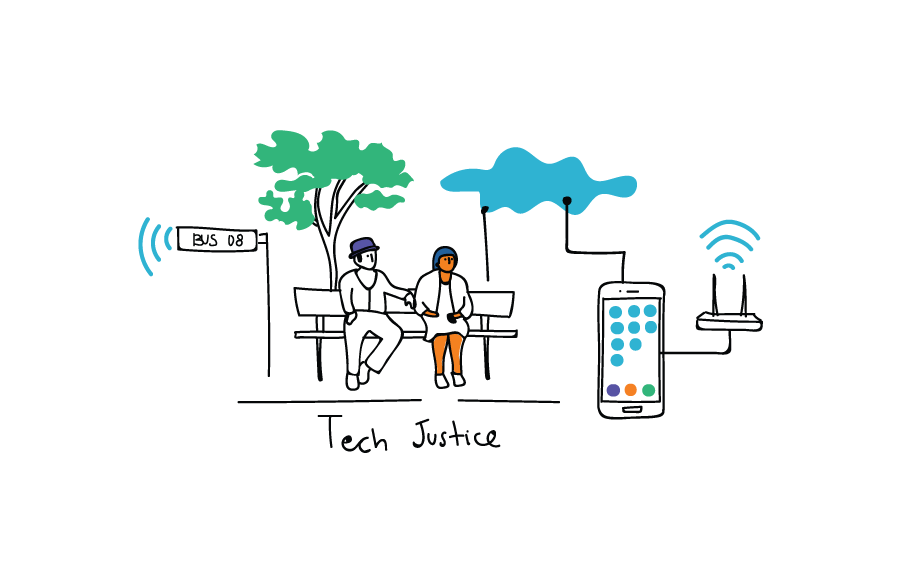
From Moderate to –
Tech Justice
–

From Weak to Strong
Co-Gov
University; NGOs; individuals; lawyers helping the community, both professionals and city lawyers. We can’t say it is strong, but it became stronger.

From Moderate to Moderate
Enabling State
We learnt that we can simplify the bureaucreatic procedures and solve some issues in a simpler way. The open call stimulated a very positive response from the actors.

From Weak to Moderate
Soc&econ Pooling
Presov Capital of Culture, opportunity to activate resource pooling. Civic eState work was used to submit the application for the Capital of Culture. People met in the ULG and then started working together on fundraising.

From Strong to Strong
Experimentalism
The project is methodologically innovative, is inspired from experiences of other partners, the stakeholders have adapted to the local context some of the lessons learned.

From Moderate to –
Tech Justice
Do you what to know more about Presov?
Read all the details of the journey with the city of Presov.

